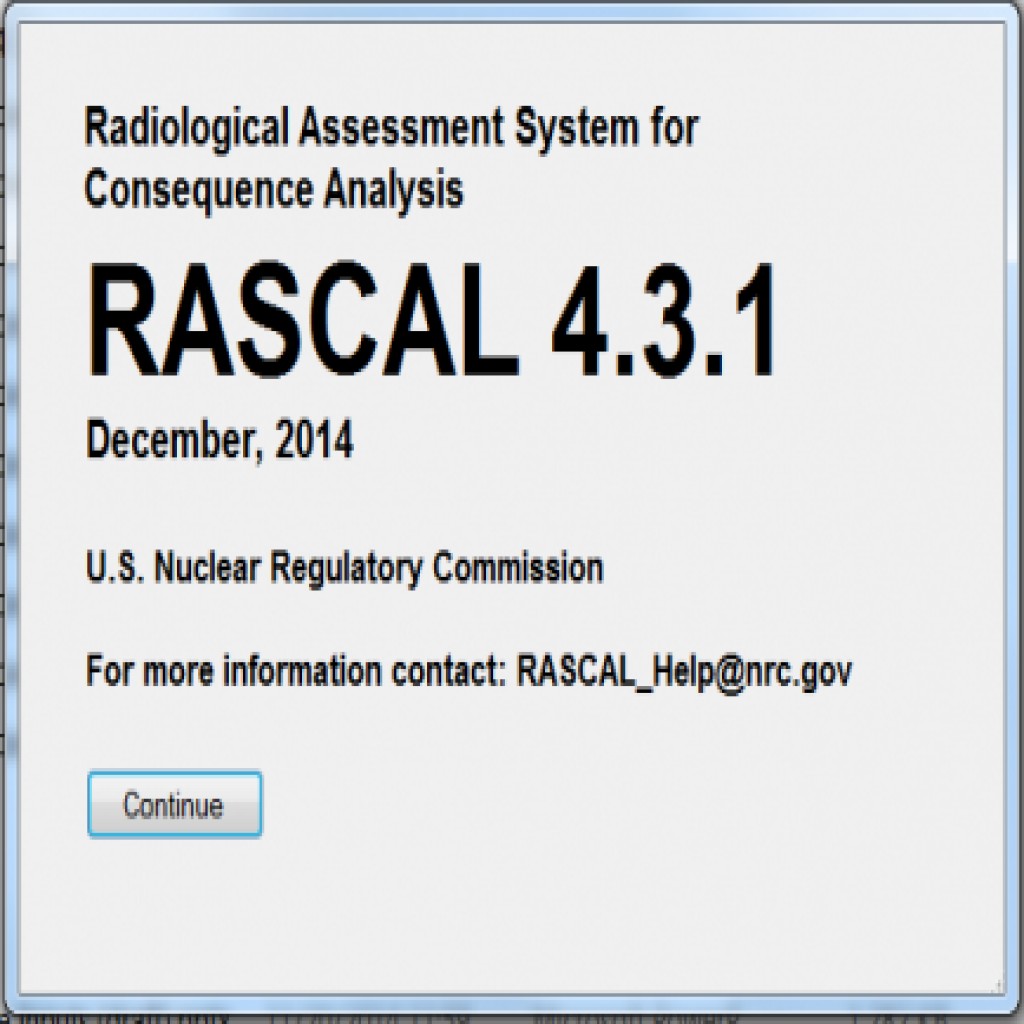آموزش کد هسته ای راسکال(rascal)-کد تجزیه و تحلیل پیامد های رادیولوژیکی
🔹 معرفی کد RASCAL
کد RASCAL (سامانه ارزیابی پیامدهای رادیولوژیکی) ابزاری تخصصی است که توسط تیم اقدامات حفاظتی در مرکز عملیات کمیسیون تنظیم مقررات هستهای ایالات متحده (NRC) توسعه یافته است. این ابزار برای پیشبینی مستقل دوز تشعشعی و پیامدهای احتمالی در شرایط اضطراری و حوادث رادیولوژیکی مورد استفاده قرار میگیرد.
RASCAL بیش از ۲۵ سال پیش طراحی شد تا امکان ارزیابی سریع حوادث یا سوانح در تأسیسات دارای مجوز NRC را فراهم کند و در تصمیمگیریهایی مانند تخلیه عمومی یا پناهگیری در محل نقش مؤثری ایفا کند.
🔹 کاربردها و قابلیتها
RASCAL توانایی ارزیابی رهاسازیهای جوی مواد رادیواکتیو از منابع زیر را دارد:
-
نیروگاههای هستهای
-
استخرها و محفظههای ذخیرهسازی سوخت مصرفشده
-
تأسیسات چرخه سوخت هستهای
-
مراکز نگهداری و انتقال مواد رادیواکتیو
هرچند دادههای RASCAL تنها معیار تصمیمگیری نیستند، اما نقشی کلیدی و مکمل در تحلیل شرایط اضطراری ایفا میکنند.
🔹 بهروزرسانیها و نسخههای مهم
📌 نسخه 4.3.3 – سپتامبر 2017
-
رفع مشکلات کدنویسی در ماژول STDose
-
بهبود مدلهای فشار محفظه، نشتی، نرخ و غلظت خروجیها
-
ارتقای ابزار MetFetch برای دریافت دادههای هواشناسی از ایستگاههای بینالمللی (METAR)
📌 نسخه 4.3.2 – جولای 2016
-
اصلاح مدلهای UF6 و نشت خنککننده
-
رفع مشکلات امنیتی در دریافت دادههای هواشناسی از سرورهای جدید NWS
📌 نسخه 4.3.1 – دسامبر 2014
-
بهبود تولید اصطلاحات منبع برای سناریوهای مختلف
-
ارتقای ماژولهای مدیریت دادههای هواشناسی و استخر سوخت مصرفشده
📌 نسخه 4.3 – سپتامبر 2013
-
پیادهسازی درسآموختههای حادثه فوکوشیما
-
افزایش شعاع مدل ATD از ۵۰ به ۱۰۰ مایل
-
اضافه شدن مدل خاموشی بلندمدت نیروگاه (LTSBO) و امکان ارزیابی چند راکتور همزمان
📌 نسخه 4.2 – اکتبر 2011
-
بهروزرسانی عوامل تبدیل دوز (DCF)
-
ارتقای مدلهای STDose و FMDose
-
افزودن اطلاعات ارتقای توان تأسیسات به پایگاه داده





